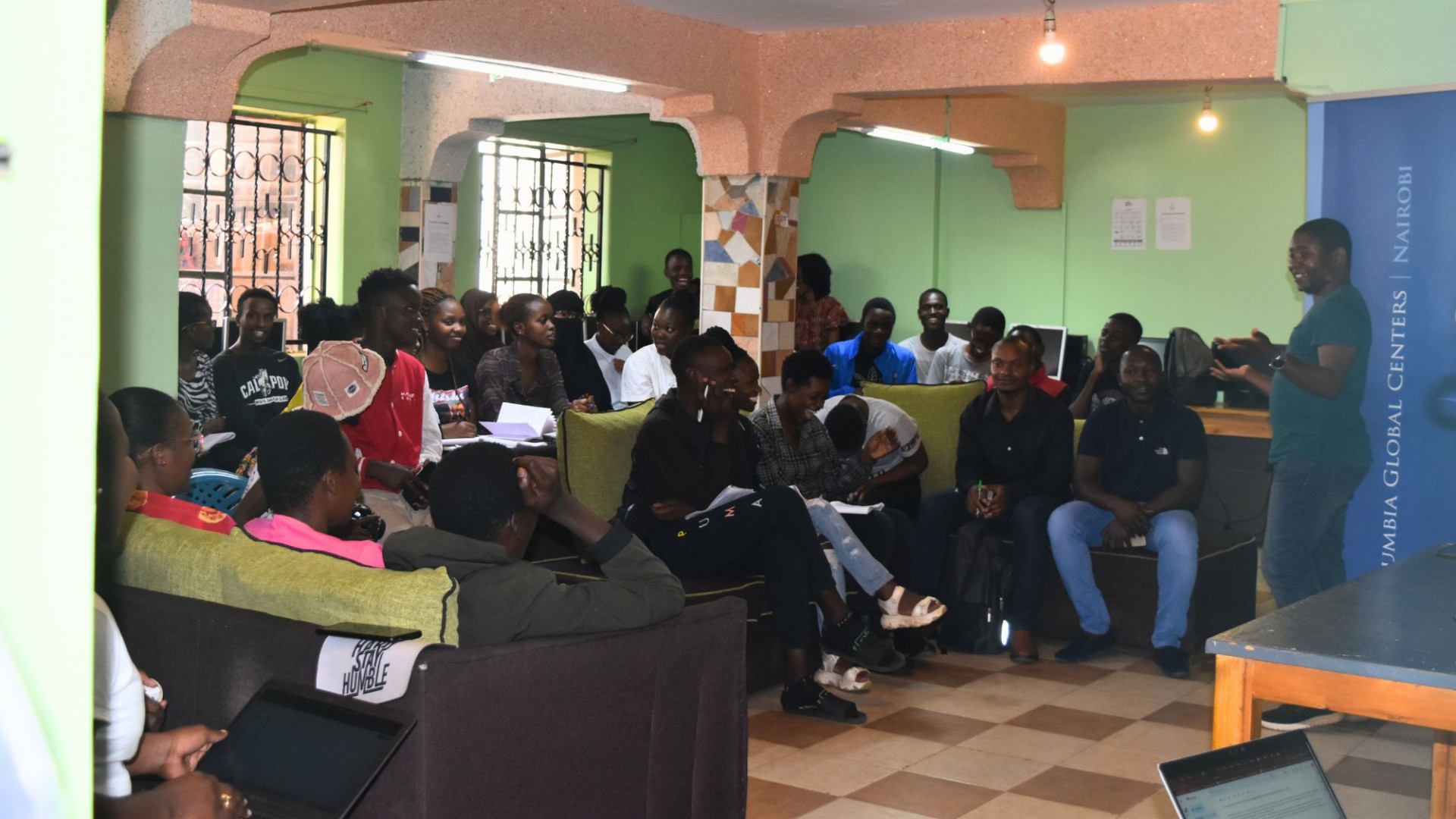Empowering Kenyan Youth: A Journey towards Mental Wellbeing
The Nairobi Center addresses the mental health needs of youth living in informal settlements in Nairobi, Kenya - a region often forgotten.

The Nairobi Center created a 4-part mental health program to re-generate healthy minds for the youth in informal settlements - a locality often ignored. During the four sessions, the program has educated the youth on stress management, coping mechanisms, resilience, and learning agility. The program was facilitated by Albert Migowa - an emotional intelligence and wellness coach, and was conducted at Tunapanda Institute. Tunapanda is a Swahili word meaning ‘we are growing.’ The institution is a non-profit social enterprise that runs intensive 3-month technology, design, and business training courses in extreme low-income environments of East Africa, such as Kibera. Tunapanda provides an educational environment and experiences that cultivate lifelong learning, problem-solving, and financial success for the youth. Graduates and beneficiaries go on to become accomplished professionals, freelancers, and entrepreneurs, all while expressing their creativity and giving their communities a stronger voice. Here is what some of the students had to say about this program:

My name is Renice Owino, and I am a developer and a STEM facilitator. I gained valuable insights during the learning agility session as it focused on the intersection between personal growth and mental wellbeing. The workshop emphasized the importance of embracing change, being open to new experiences, and adapting to different situations as key components of enhancing one's mental health. I learned that cultivating a growth mindset, seeking diverse perspectives, and reflecting on my previous experiences are essential for fostering learning agility. The workshop provided practical strategies and tools for building resilience, managing stress, and nurturing self-awareness, enabling me to navigate life's challenges with greater flexibility, adaptability, and overall wellbeing.

My name is Tonny Ndare, and I am a Digital Content writer and Videographer. In the second session about Coping Mechanisms: Adaptation and Resilience, I found out that it involves the psychological methods and strategies people use to handle challenging situations such as hardship or traumas to help reduce stress, adjust to new circumstances, and promote mental health. I also learned that through the use of adaptive coping mechanisms, individuals can effectively deal with difficult situations, recover from adversity, and maintain their mental wellbeing. Ultimately, this leads to higher overall resilience when facing life's obstacles.

In my first class on mental health, I learned how to deal with my stressor. My name is Ruth Auma, and I volunteer for a community health organization. In this session, I learned that Stress management refers to the techniques and strategies used to cope with and reduce stress levels. The facilitator stated that managing stress effectively is crucial for maintaining physical and mental wellbeing. We were cautioned to always remember that stress is a natural response, which we will face at some point in our lives, but chronic or excessive stress can harm one's health; thus need to know when to ask for help.

I am Vallary Achieng from Tunapanda Institute. During the session on resilience, I learned that this refers to the ability of an individual to bounce back and recover from difficult situations. It involves the capacity to withstand and overcome challenges and to regain mental, emotional, and physical wellbeing. Resilience is life's best part and experience as it eventually brings out your best side. I also learned that resilience is not a fixed trait but can be developed and strengthened over time. It involves various factors such as personal attitudes, coping strategies, and social support systems.